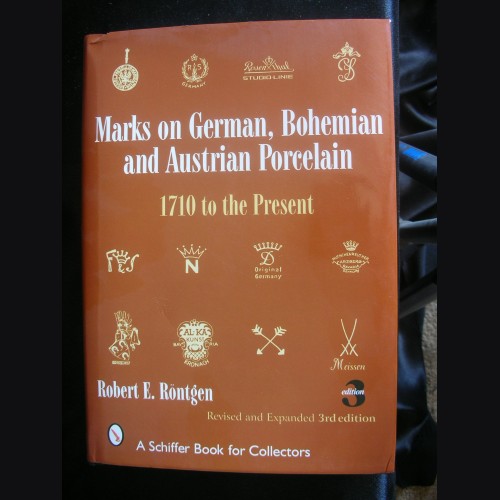Marks on German, Bohemian and Austrian Porcelain
European porcelain was born in the German city of Meissen, in 1708. This is the most comprehensive source book available to show the marks used by manufacturers, factories, and decorators from the beginning to the present. Included are more than 3,300 marks, many previously unpublished. More than 1,300 porcelain products, producers, and decorators are identified, including marks which American importers had applied. A special chapter shows more than 650 marks of Continental and American origin which can be confused with other famous marks. Here are aids in identifying imitations, fakes, and look-alikes, and revisions of marks which have been incorrectly identified until now. In all cases, the time period in which the mark was given will enable dealers and auctioneers to determine the age of porcelain items.
- $49.95
- Availability: In Stock
European porcelain was born in the German city of Meissen, in 1708. This is the most comprehensive source book available to show the marks used by manufacturers, factories, and decorators from the beginning to the present. Included are more than 3,300 marks, many previously unpublished. More than 1,300 porcelain products, producers, and decorators are identified, including marks which American importers had applied. A special chapter shows more than 650 marks of Continental and American origin which can be confused with other famous marks. Here are aids in identifying imitations, fakes, and look-alikes, and revisions of marks which have been incorrectly identified until now. In all cases, the time period in which the mark was given will enable dealers and auctioneers to determine the age of porcelain items.


